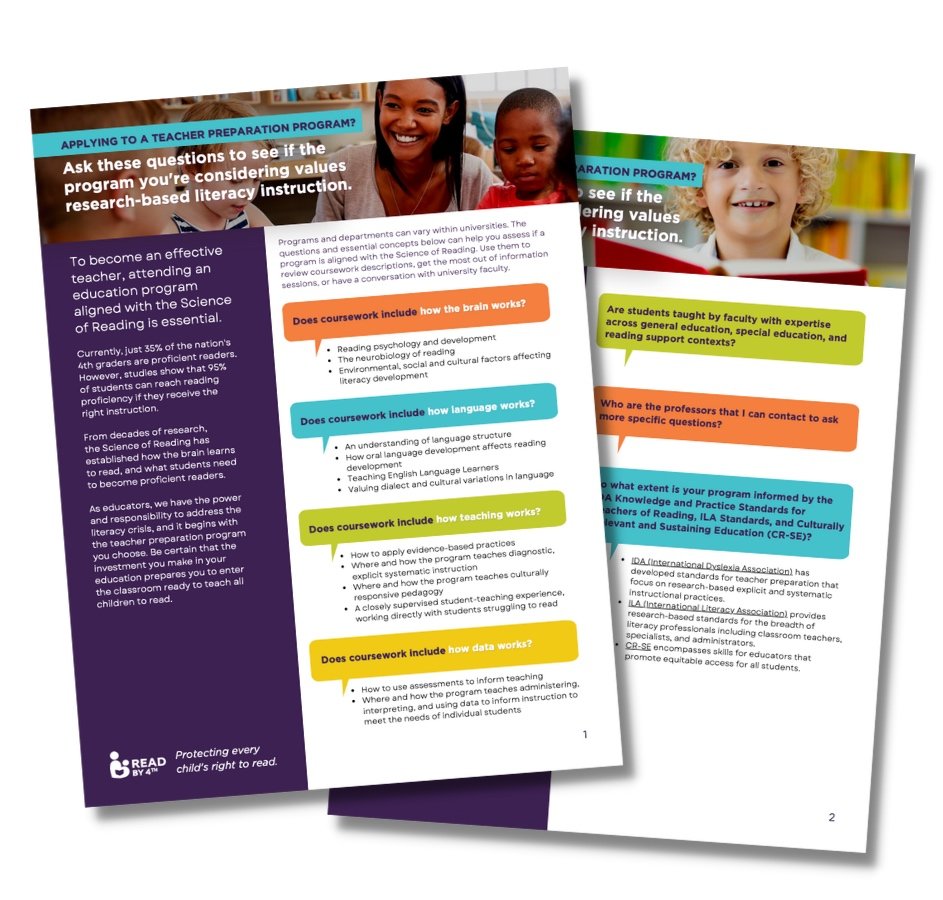Applying to an education program? Ask these questions to see if it’s aligned with the Science of Reading
As educators, we have the power and responsibility to address the literacy crisis. And it begins with the teacher preparation program you choose.
Currently, just 35% of the nation's 4th graders are proficient readers. However, studies show that 95% of students can reach reading proficiency if they receive the right instruction. Through decades of research, the Science of Reading has established how the brain learns to read, and what students need to become proficient readers.
While more teacher preparation programs than ever before have aligned with the Science of Reading, departments and even programs can vary within universities. Ask the questions below to make sure your education prepares you to enter the classroom ready to teach all children to read.
Does coursework include how the brain works?
Reading psychology and development, the neurobiology of reading, how social and cultural factors affect literacy development.
Does coursework include how language works?
An understanding of language structure, oral language development, teaching English Language Learners, valuing dialect and cultural variations in language.
Does coursework include how teaching works?
How to apply evidence-based practices, explicit systematic instruction, culturally responsive pedagogy, a supervised student-teaching experience working directly with students struggling to read.
Does coursework include how data works?
How to use assessments to inform teaching, approaches to administering, interpreting, and using data to inform instruction to meet the needs of individual students.








